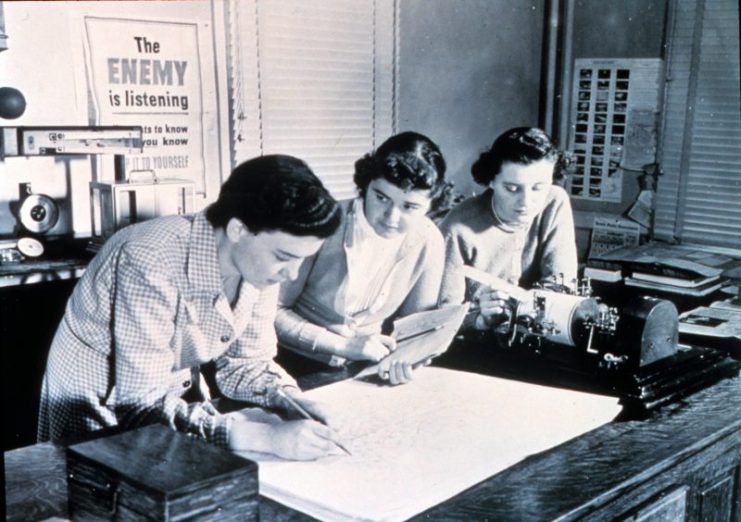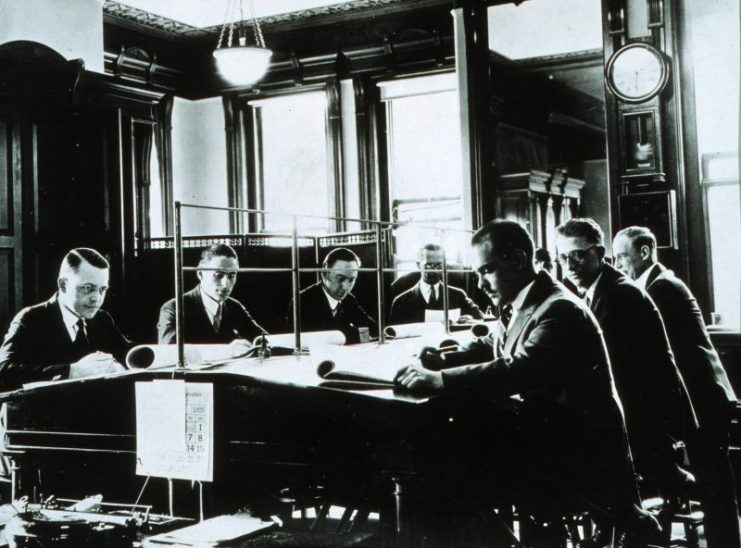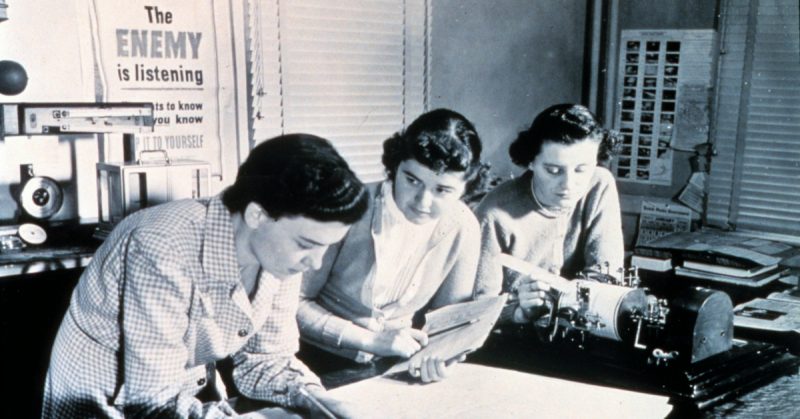On December 19, 1941, eleven days after the United States declared war on Japan, an emergency censorship agency was formed to serve as a regulatory body for information during wartime. The Office of Censorship controlled all communications going into and coming out of the US. The American press had agreed on voluntary censorship since 1939. The US media had withheld information on Canadian troop movements, as its northern neighbor was involved in the war in Europe since its inception.
The war of information proved vital in the following years, as such interventions in the media resulted in saving numerous lives ― on the other hand, the occasional accidental leaks caused the loss of many. The Code of Wartime Practices was issued. The 12-page document included what information was sensitive to the press and radio so they could be avoided.
President Roosevelt’s movements across the country were kept top secret for fear of potential assassinations. The so-called “man in the street” interviews were forbidden in case a subversive grabbed a microphone and transmitted harmful messages or pieces of code.
As cryptography developed during the war, the radio became more and more censored. Broadcasting musical requests were strictly forbidden as they could have contained encoded data.

The Battle of the Atlantic was heating up. Stories of sightings of Japanese and German U-Boats off both the eastern and the western coasts became more frequent. Weather reports became extremely valuable pieces of information. An enemy could intercept radio signals predicting the weather and potentially plan their actions.
The Office of Censorship together with the US Weather Bureau agreed to limit their public information to the bare minimum.
To prevent the use of such information by the enemy, the Office of Censorship forbade any mention of the weather forecast on the radio. The newspapers were still permitted to print temperature tables and regular bureau forecasts, but radios were completely silent when it came to weather.
When the devastating March 1942 tornado struck the Central and Southern United States, the radio was once again prohibited from broadcasting any information about it. It was one of the deadliest storms in US history, claiming the lives of 153 people and injuring at least 1,284.
Nevertheless, the Code demanded such data be kept off the radio waves. Information about such dangerous climate catastrophes could have been useful for the lurking Axis U-Boats.

Even though the weather report ban on the radio usually made life difficult for the average American, it sometimes caused ridiculous situations, worthy of a comedy. In August 1942, a Chicago football match was at the center of such an event.
On the day of the match, a dense fog covered Chicago. Visibility was so low that the play-to-play commentator on the radio was almost completely unaware of the action taking place on the pitch. He struggled to transmit the match, mistaking names of the players and barely keeping the score, but he never once mentioned the reason for his handicap. The word “fog” was never uttered in the transmission and the announcer’s struggle during the live broadcast must have caused an avalanche of laughter among the listeners.
There had been speculation (incorrectly) that enemy U-Boats were capable of sailing into the Great Lakes on spying missions and to infiltrate agents. The fog had to be kept secret. The other reason why the weather conditions in Chicago were not broadcast was that they usually traveled on towards the East Coast in a matter of days.
After the game, the Weather Bureau thanked the commentator for his commitment to the Code of Wartime Practices, as he miraculously left out any information concerning the weather throughout his broadcast.
The following year, the Code was relaxed a bit, as such strict restrictions were no longer necessary. After VE Day, in May 1945, its final revision cut the document to only four pages, as life in the US rapidly returned to normal.
